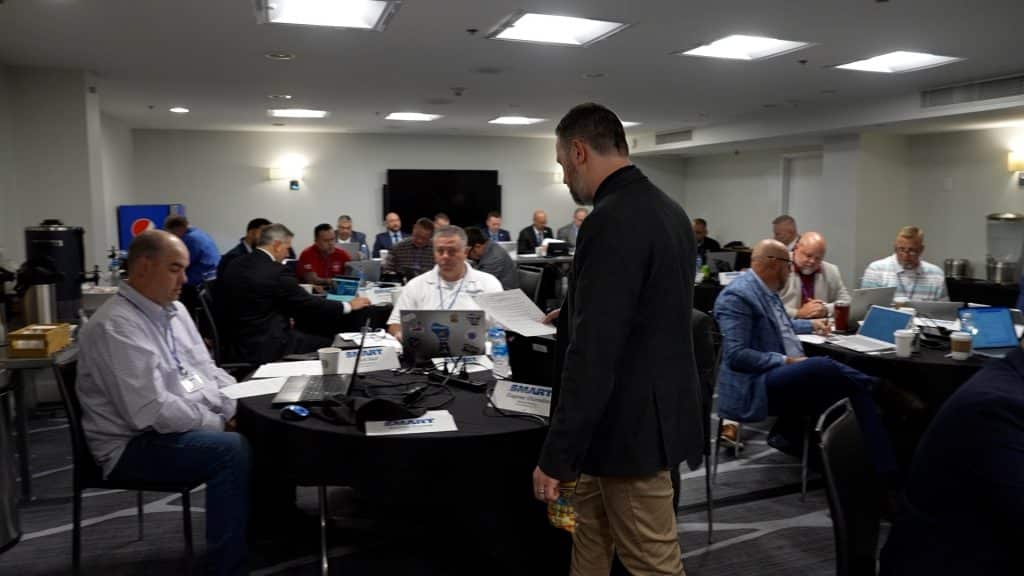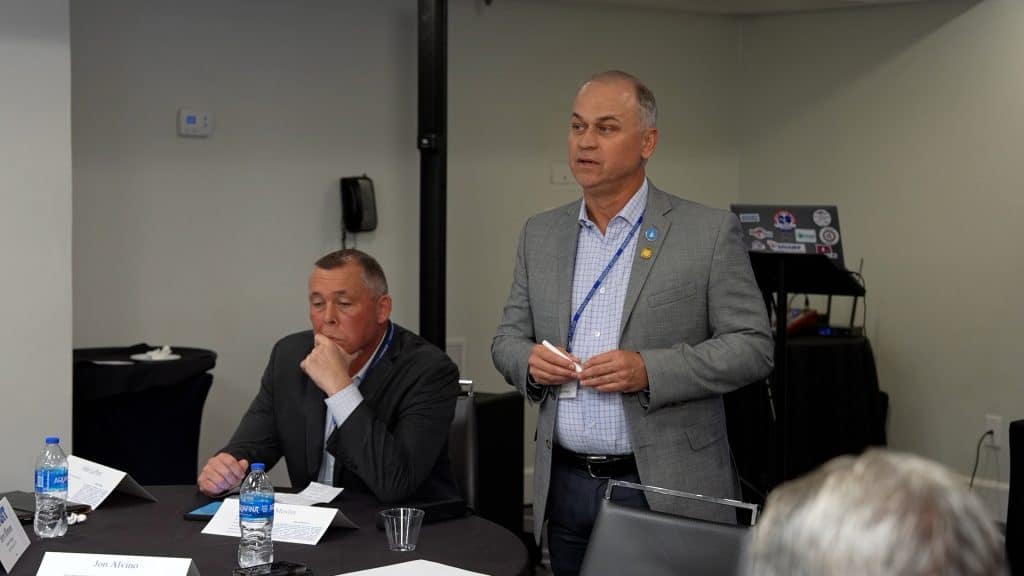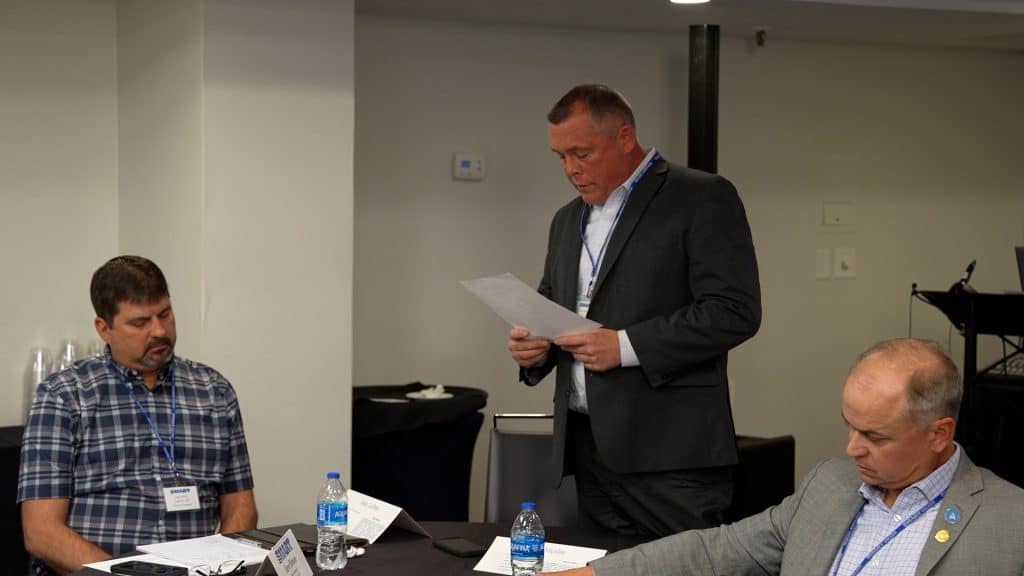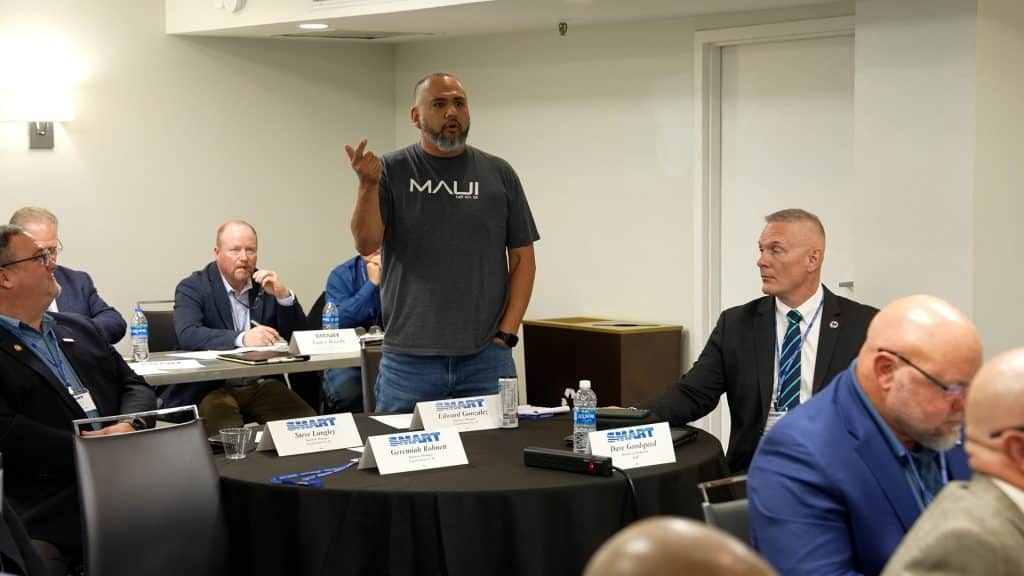SMART’s Education Department has long offered training for newly elected local union business representatives and agents. But during unrelated efforts to better train union leadership, retired SMART General Vice President Tim Carter recently explained, “It occurred to us: The most critical position, the business manager, doesn’t have any formal training. All the training is learned by the seat of their pants.”
That changed last summer, when SMART hosted its first-ever business manager training in Nashville, Tennessee. The class, attended by local union business managers from across North America, is intended to ensure local leaders are as prepared as possible to represent SMART members to the best of their abilities.
“We essentially created a new program,” said SMART Director of Education Sam White. “It’s a little different than the new business agents class that they also have to take; it’s more about how to manage a local. And I think for our organization, you’re talking about a very important, strategic position that [had] no dedicated training.”
Experienced business managers and International staff came together to create a curriculum that will serve business managers for years to come. The training, which ran from 8 a.m. to 5 p.m. for three days, included guidance on advocating for members from SMART House Counsel Luke Rebecchi, an overview of the business managers’ SMART Constitutional responsibilities, interactive sessions on how to run meetings and how to work with SMART International staff, trainings on organizing and collective bargaining, and much more.
Attendees left not only equipped with new knowledge and skills, but with a sense of camaraderie with fellow leaders from across North America, Carter noted. That can only bolster their ability to advocate for members in every corner of the United States and Canada — now, they have peers to turn to for advice and cooperation, whether organizing for a new megaproject or entering contract negotiations.




“This class is a part of investing in ourselves,” SMART General President Michael Coleman told business managers at the training. “That’s our responsibility to our locals, to our members and to this organization. That’s our obligation: that we are at the top of our game, that we are moving faster than others, and that comes with the education.”